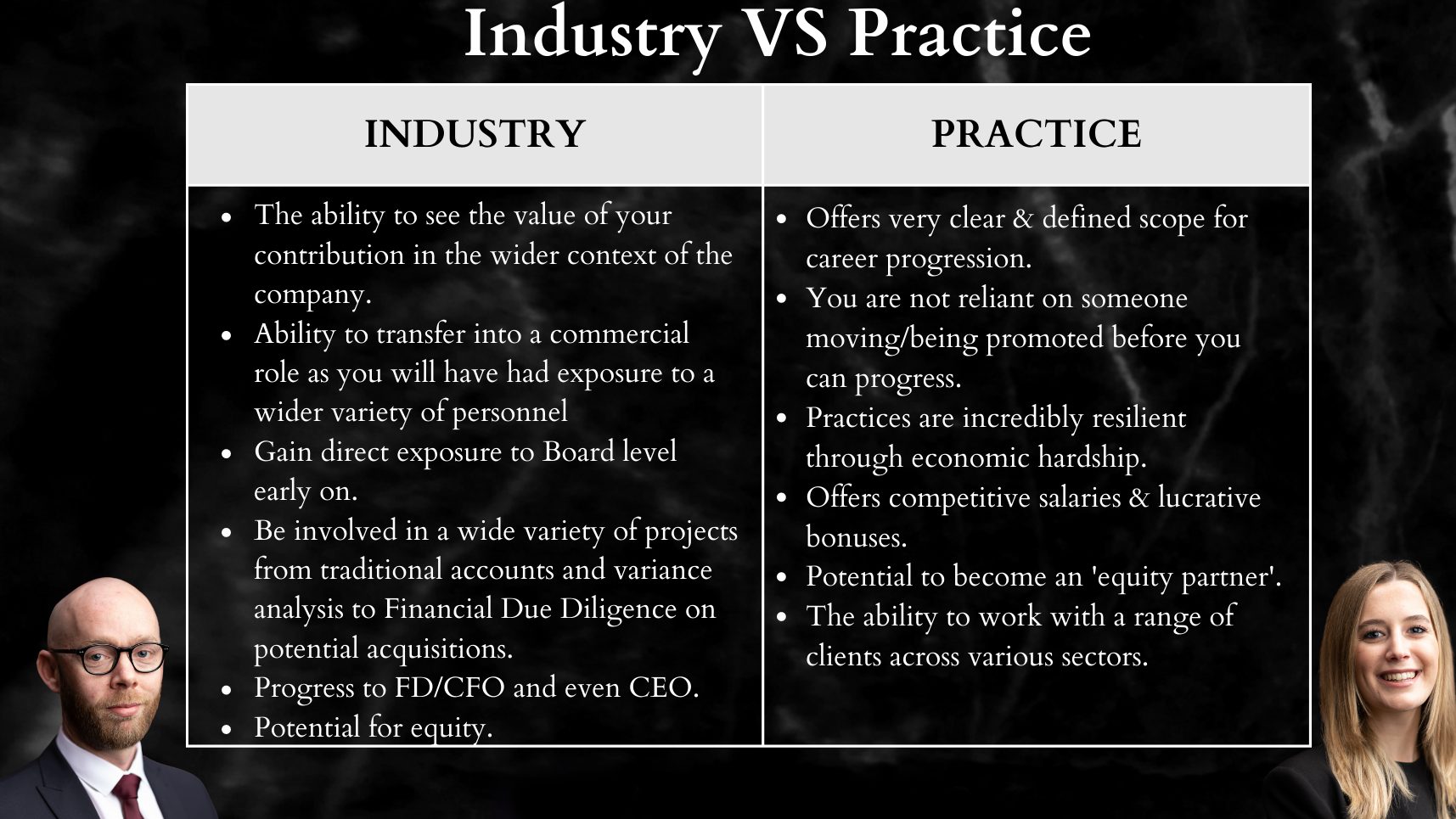Demand for qualified accountants has never been greater. This is great if you’ve entered into the profession, however this can be overwhelming and makes for a tough decision. With so many approaches on LinkedIn by recruiters and employers, it can be hard to decipher which is the best road to go down and which suits your personal strengths and aspirations.
Recruitment consultants get a bad press for “shoe horning” or mis-selling opportunities. This will only lead to short term gain for the recruiter and long-term pain for the candidate, as well as the employer. At Artemis, we asked our specialists consultants to discuss some of the key questions you may have asked yourself when pondering the question ‘Practice or Industry’?
Beth Gault is our dedicated accountancy practice recruitment consultant, and Stephen Cunningham is one of our consultants who focuses on industry roles. We have asked each consultant to consider four key questions:
- Which has the greatest scope for progression?
- Which can lead to the highest earnings?
- How easy is it to move between the two?
- Which suits me best?
Q1. Which has the greatest scope for progression?
BG-
Working within practice offers very straightforward and defined career progression, all practices use similar job titles to indicate level and experience. Practice also offers an unparalleled opportunity to progress which I think industry finds tricky to compete with- in practice, you are not reliant on someone moving on/being promoted before you yourself can progress. In practice, there can be multiple professionals at one level at any given time. Accountancy Practices are also incredibly resilient in economic hardship due to the variety of services they offer.
SC-
Although the career path within industry may be less defined, there is still significant scope for progression as well as the opportunity to focus on one business and make a clear impact to help drive growth. A strategic move may be required in order to progress if you reach a glass ceiling due to limited senior roles available within the business.
Q2. Which can lead to the highest earnings?
BG-
This can be quite closely linked with the previous question- especially when considering the more frequent opportunities for promotions when working within practice. Working in practice has more defined and structured job titles, therefore when you progress- you are also likely to get a pay increase. Practice offers competitive base salaries which can be competitive with industry roles. Practices will also offer some sort of bonus incentive (this will usually be practice/department/personal performance dependent). Once you get to a more senior level within practice there may be the potential to become an ‘equity partner’ which is a partner who will share in the practice’s net profits.
SC-
Industry does tend to be more lucrative than practice although the gap has become narrower of late. As you develop your career within industry you can expect to earn lucrative bonuses, share options and potentially equity. There is also the potential to move into more commercial roles as you gain exposure across the various business departments opening a path to C-suite positions.
Q3. How easy is it to move between the two?
BG-
I have come up against difficulty when trying to move someone trained in industry into a practice role. It is much more common, and much easier to move from practice to industry and quite uncommon to do this move vice versa. Typically, you will see a bit of this movement at newly qualified accountant level, where those coming out of contract move across into an industry-based role.
If you see yourself in industry longer term, it is better to do that move earlier in your career rather than later. However, if you are practice trained and make a move into industry and at a later point in your career you wish to return to practice, this is a very possible move. Candidates returning to practice after several years in industry can still be warmly received applicants.
SC-
There is a strong appetite within industry for practice trained accountants, particularly newly and recently qualified accountants. In truth it becomes slightly more difficult the longer you are in practice but not impossible, there are numerous instances of candidates coming out of practice straight into FC/FD roles depending on experience. If your long-term objective is to build a career in industry it is advisable to make that switch at the earliest opportunity giving you more relevant experience when looking at senior positions.
Q4 – Which suits me best?
BG-
At the end of the day, I think it comes to personal preference. I think working within an accountancy practice offers excellent scope for progression and the opportunity to diversify your skill set at all stages of your career. Working within practice enables you to build up your own portfolio of clients & have a lot of autonomy in your work. It allows you to work collaboratively across different service lines & specialisms. Accountants working within practice will gain experience across a variety of different businesses within different industries & in various sizes.
SC-
This is a very personal question and only you can really answer but in industry you can quite easily move into a role in a business or sector that is of particular interest to you outside of a work capacity. You can also see the value of your contributions in the wider context of the direction of the business. You could potentially have a more varied workload and exposure to a wide variety of projects from traditional accounts and variance analysis to Financial Due Diligence on potential acquisitions. While not applicable to all positions there is generally a better work/life balance within industry roles.
In summary, industry vs practice will come down to personal preference & where you see yourself long term. Both will offer their own benefits & their own disadvantages. So, there you have it. To have an impartial conversation about the next step in your career, please contact our specialist accountancy and finance recruitment team:


